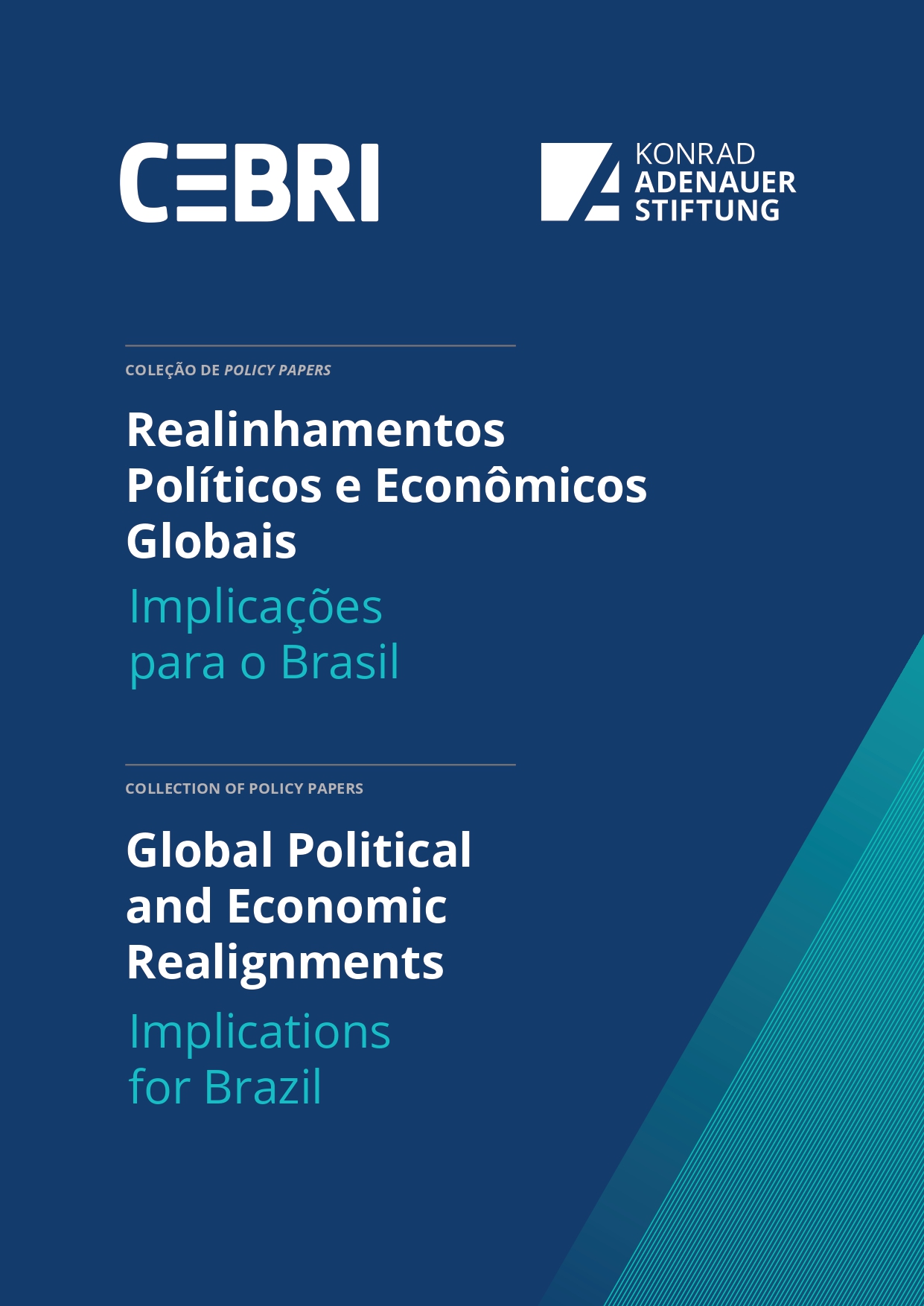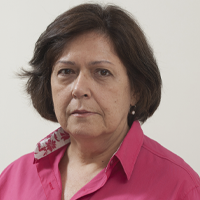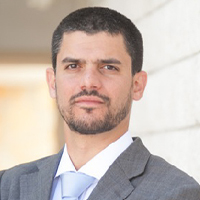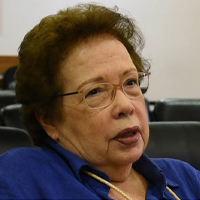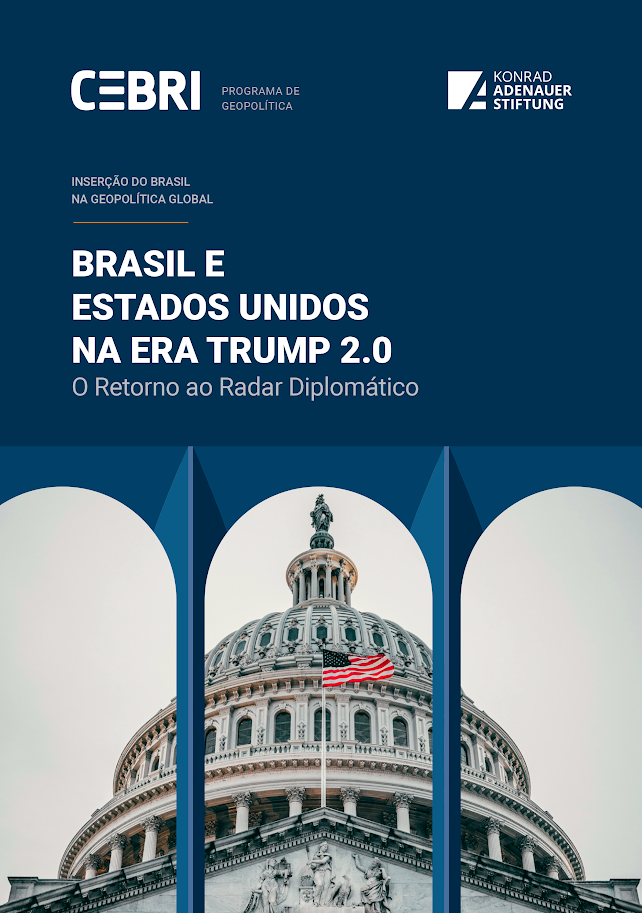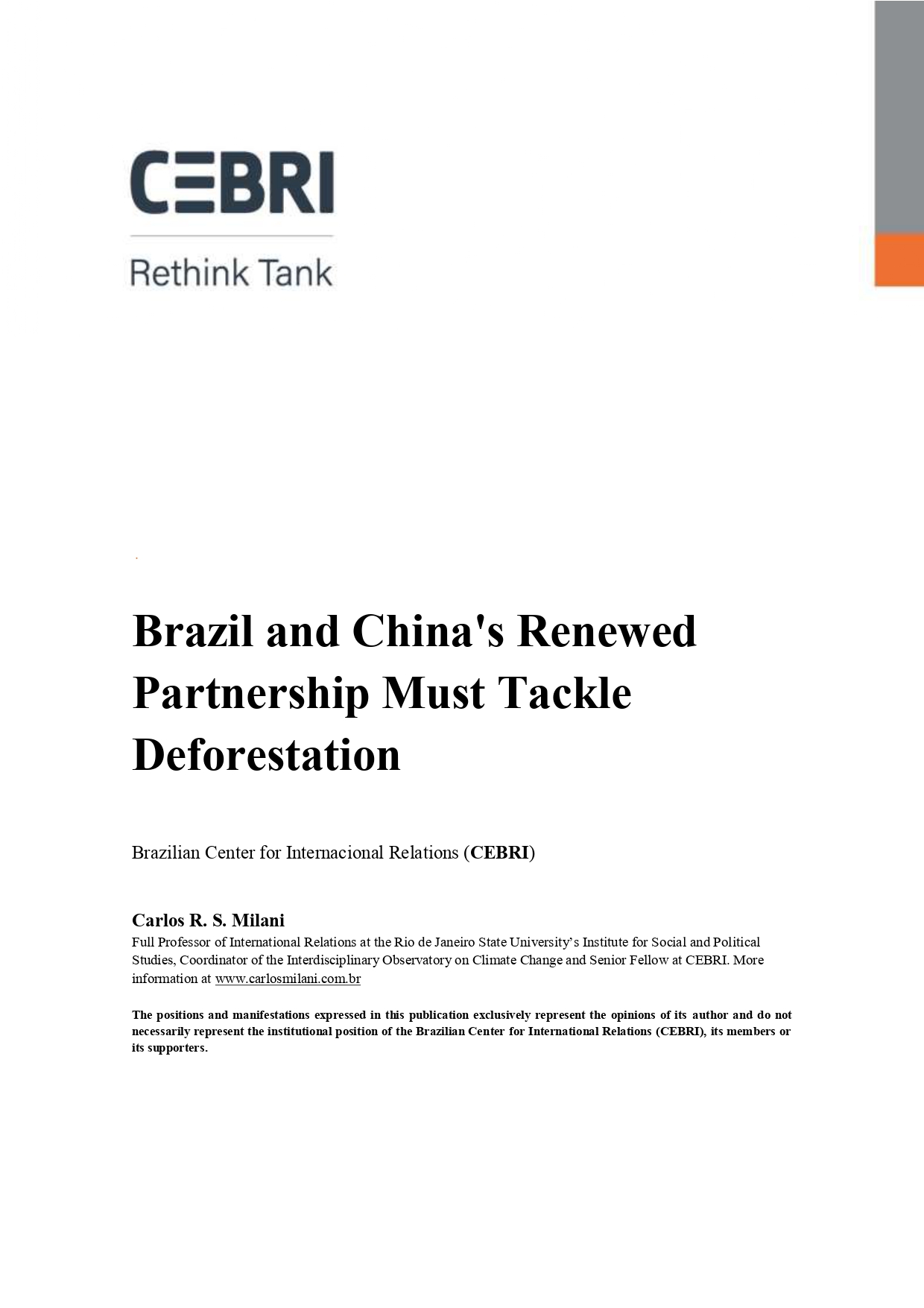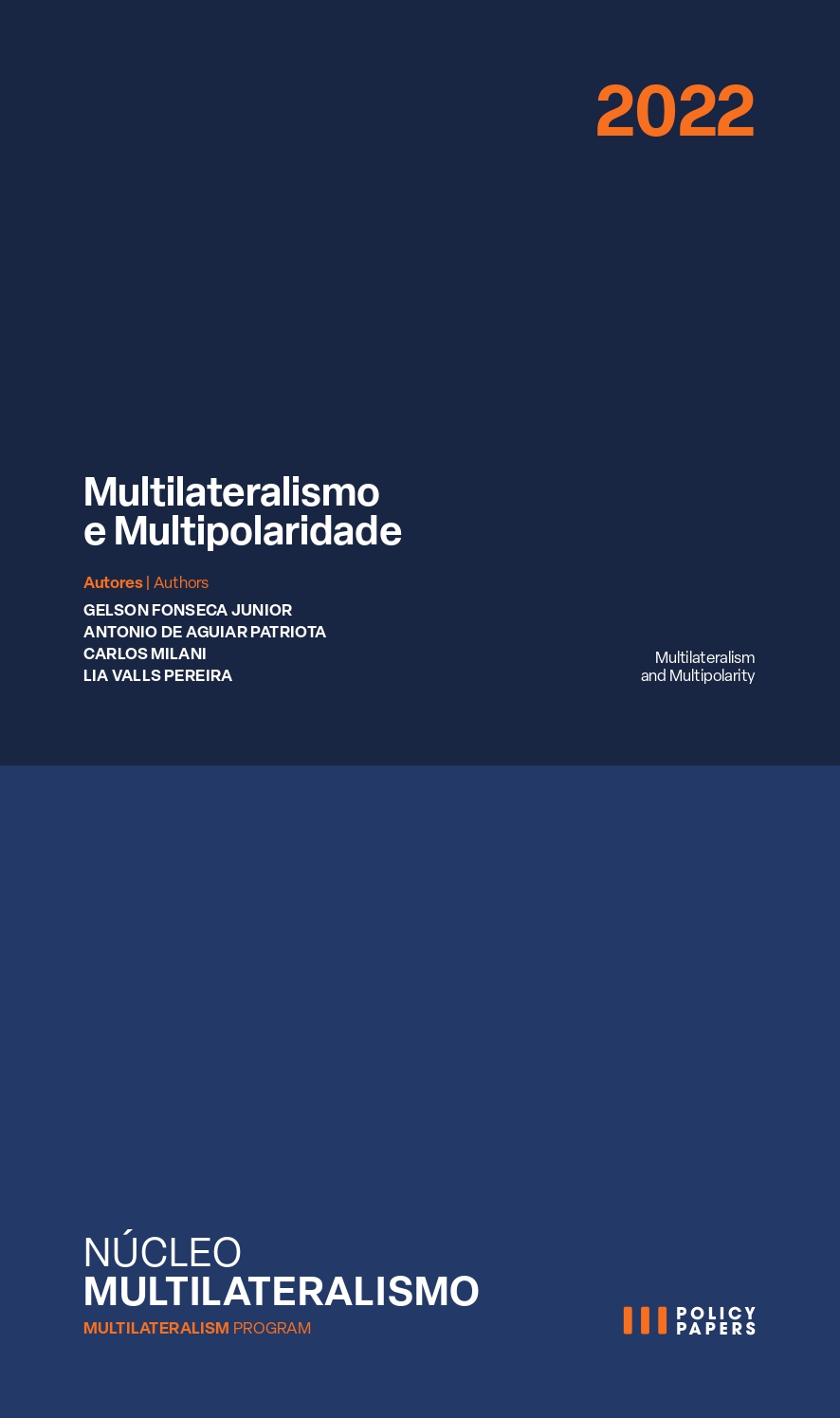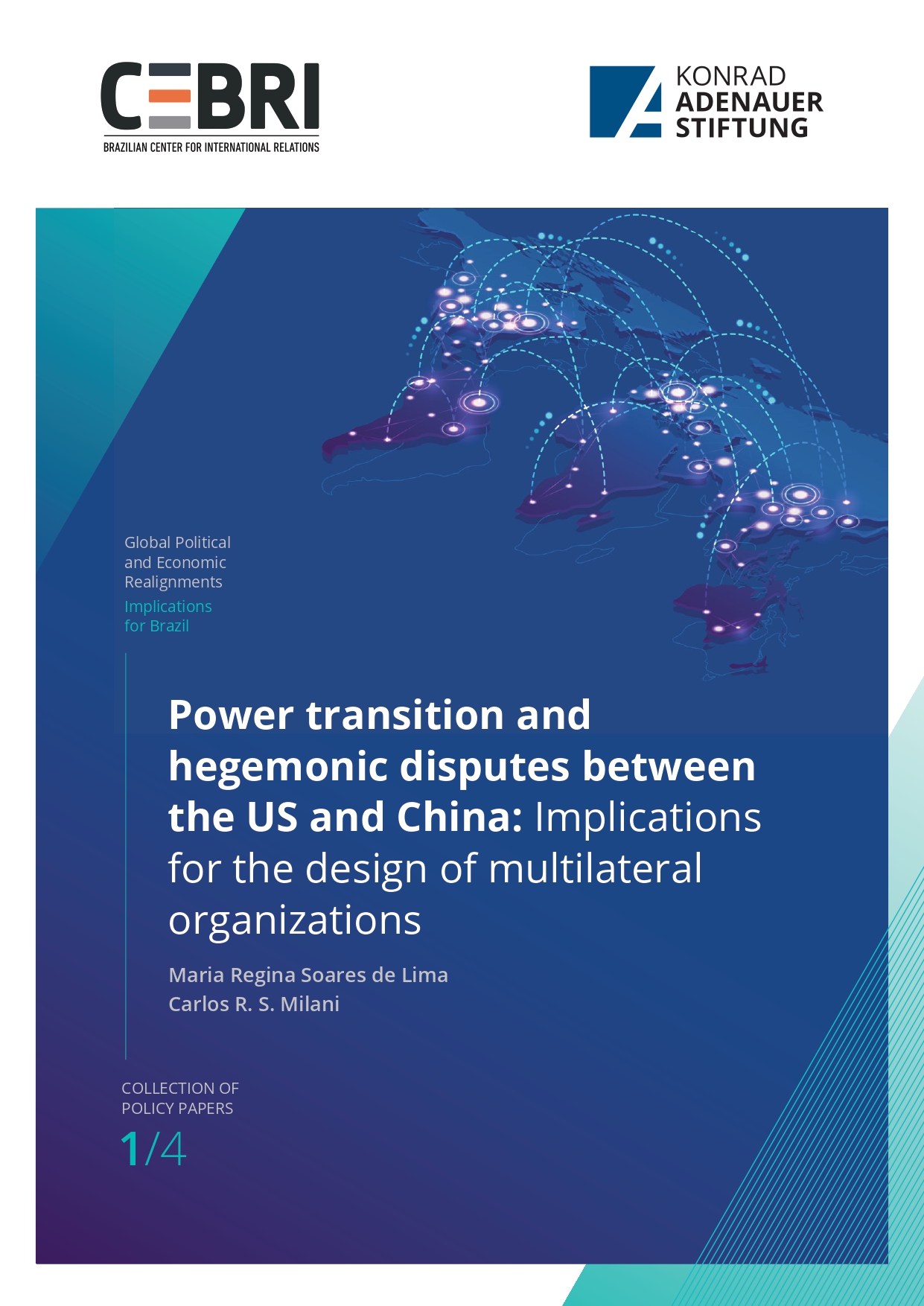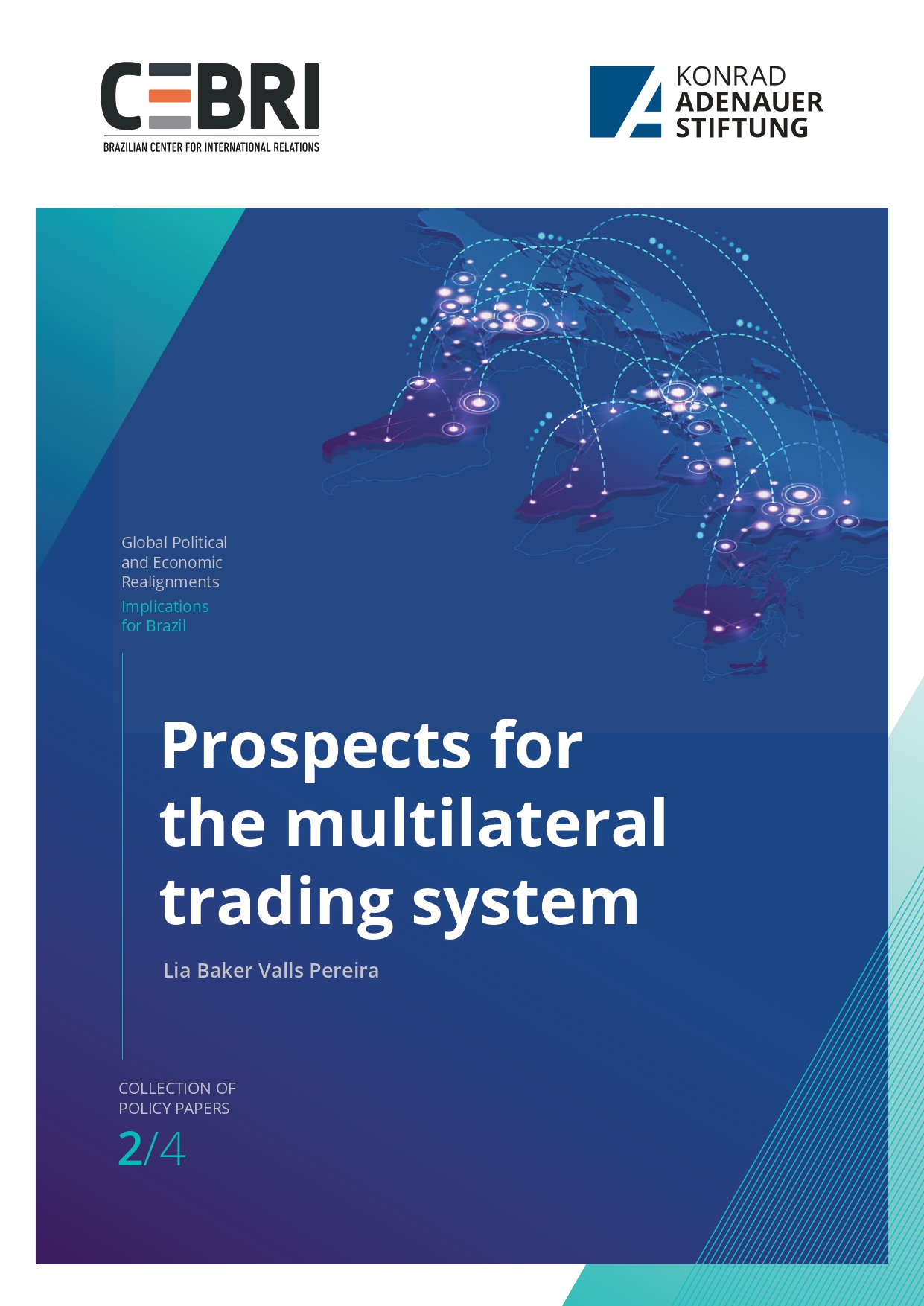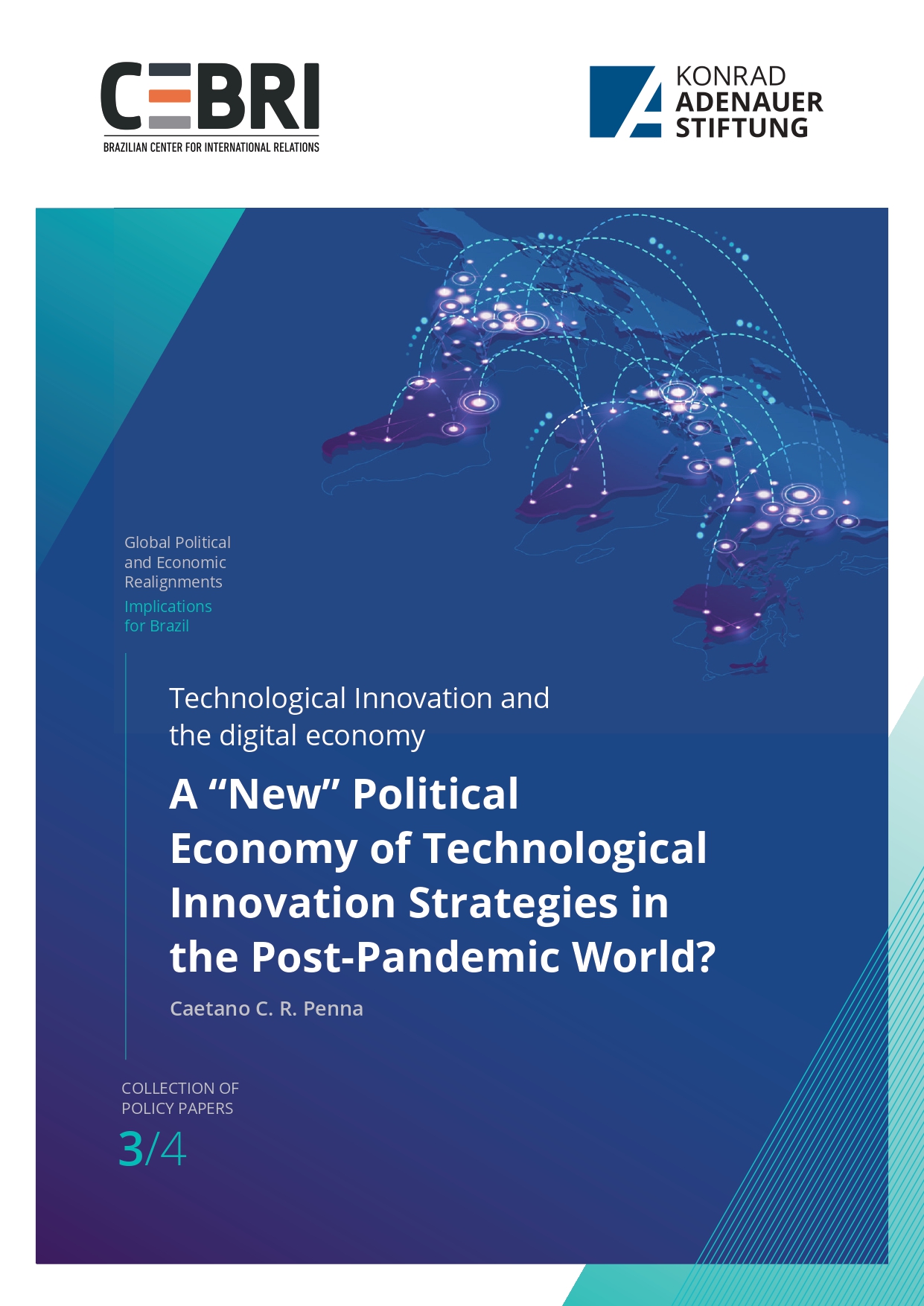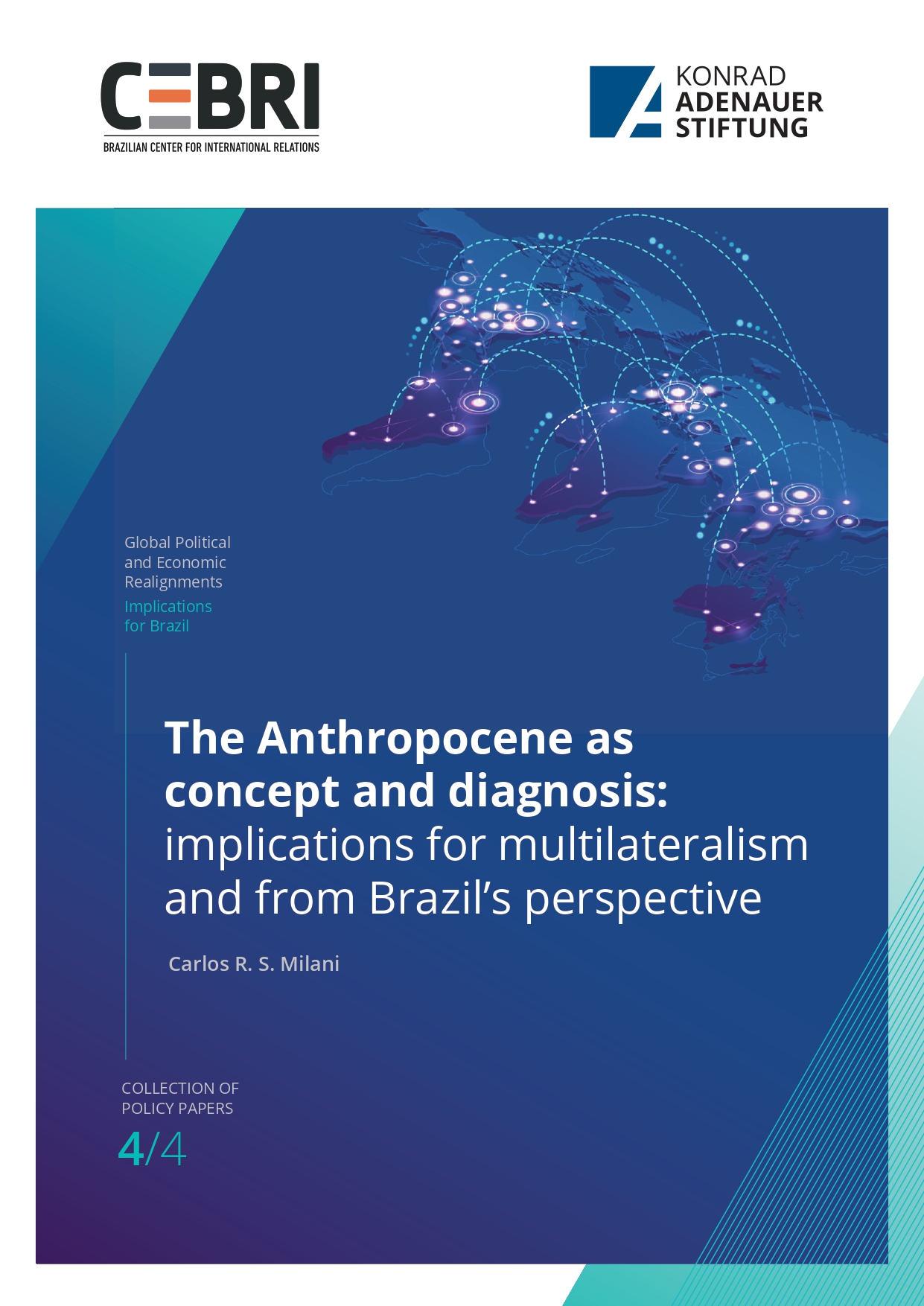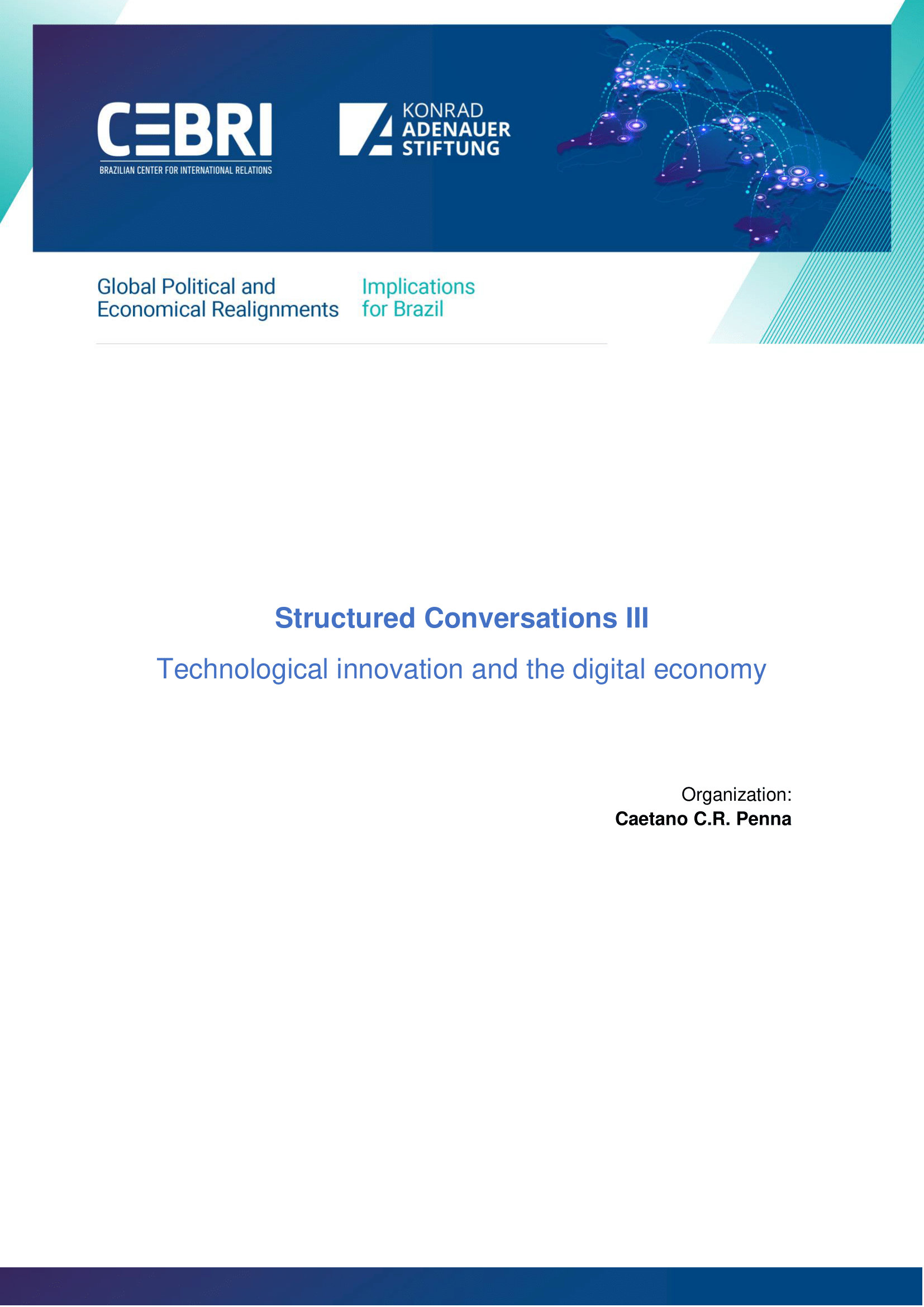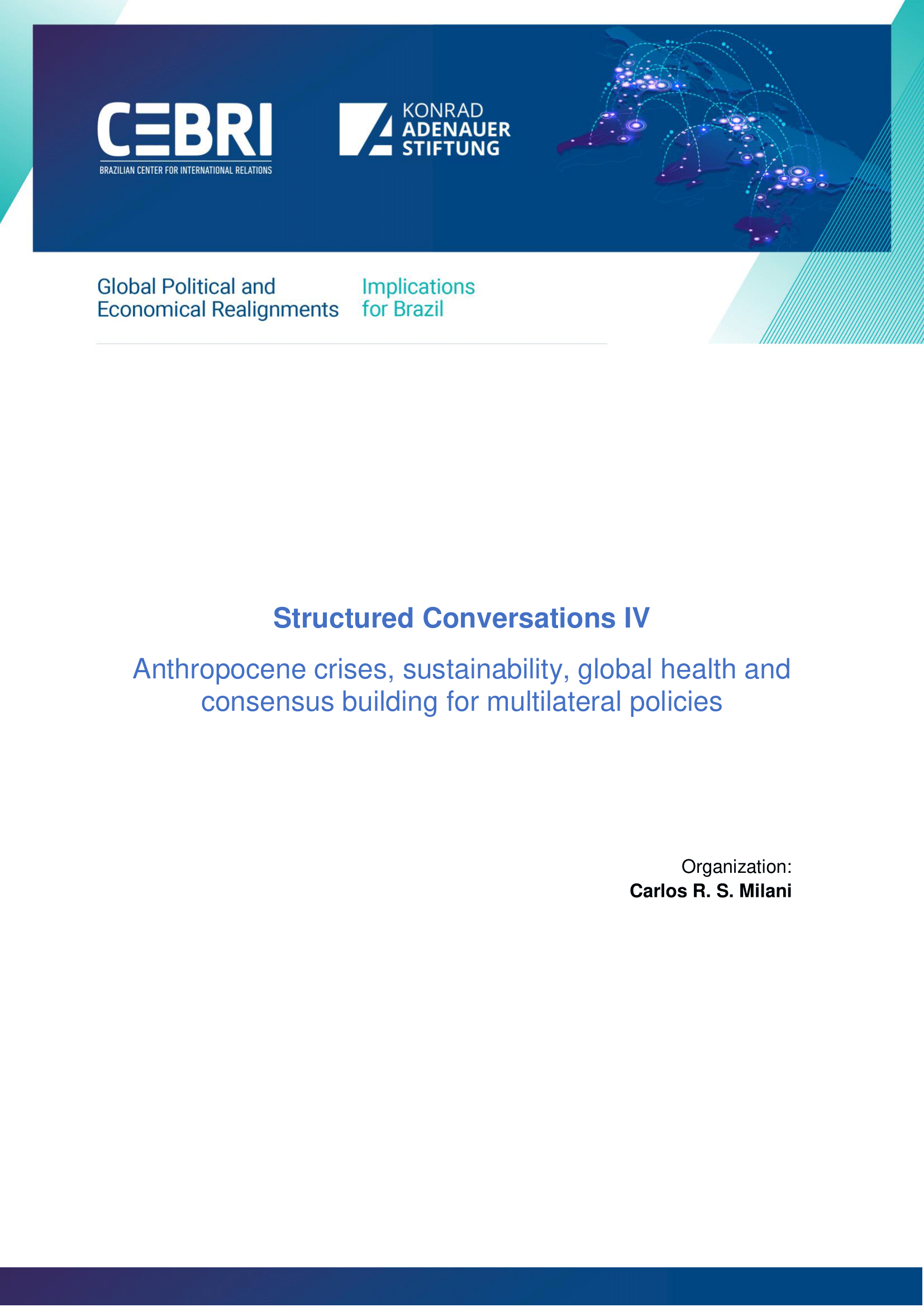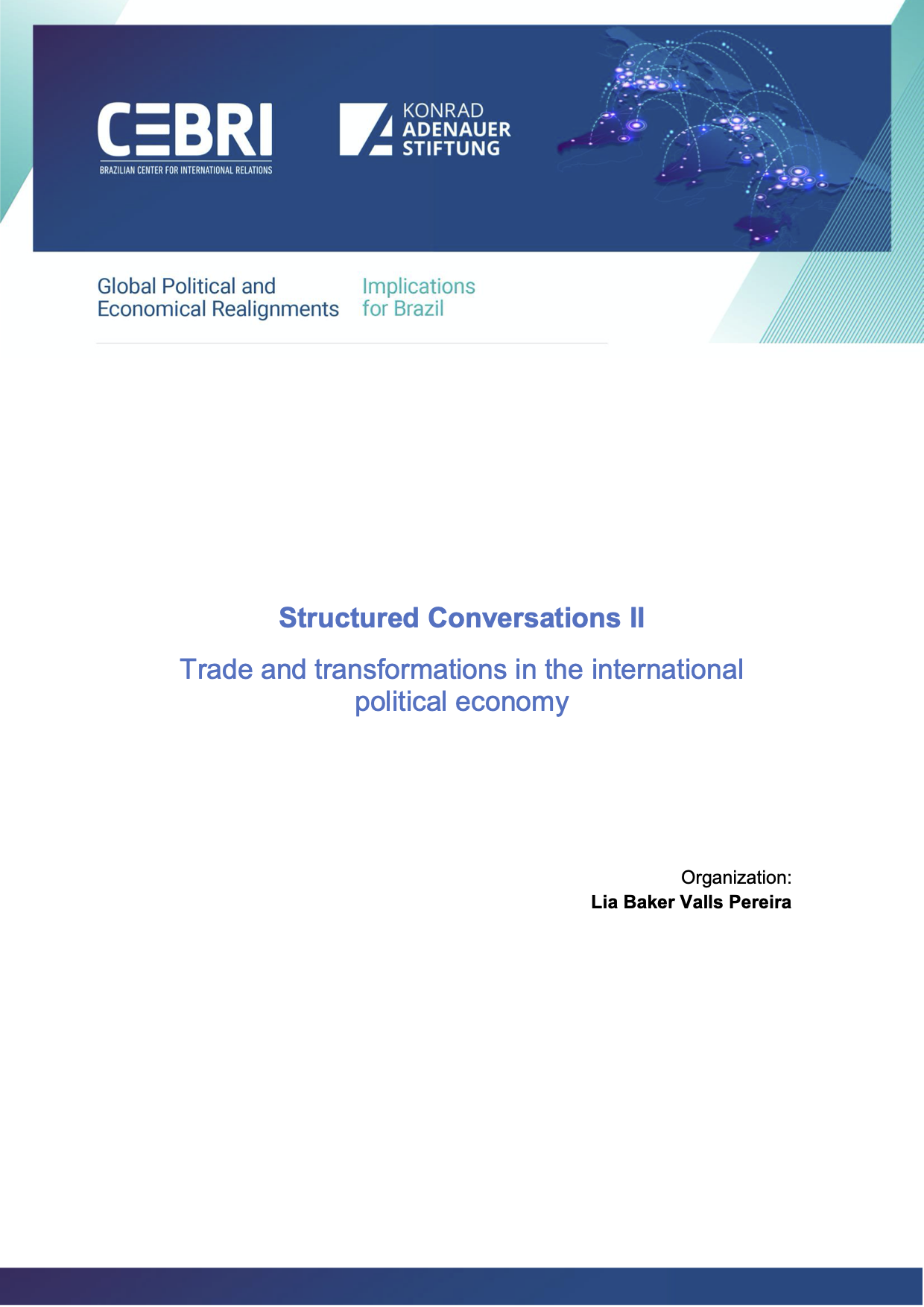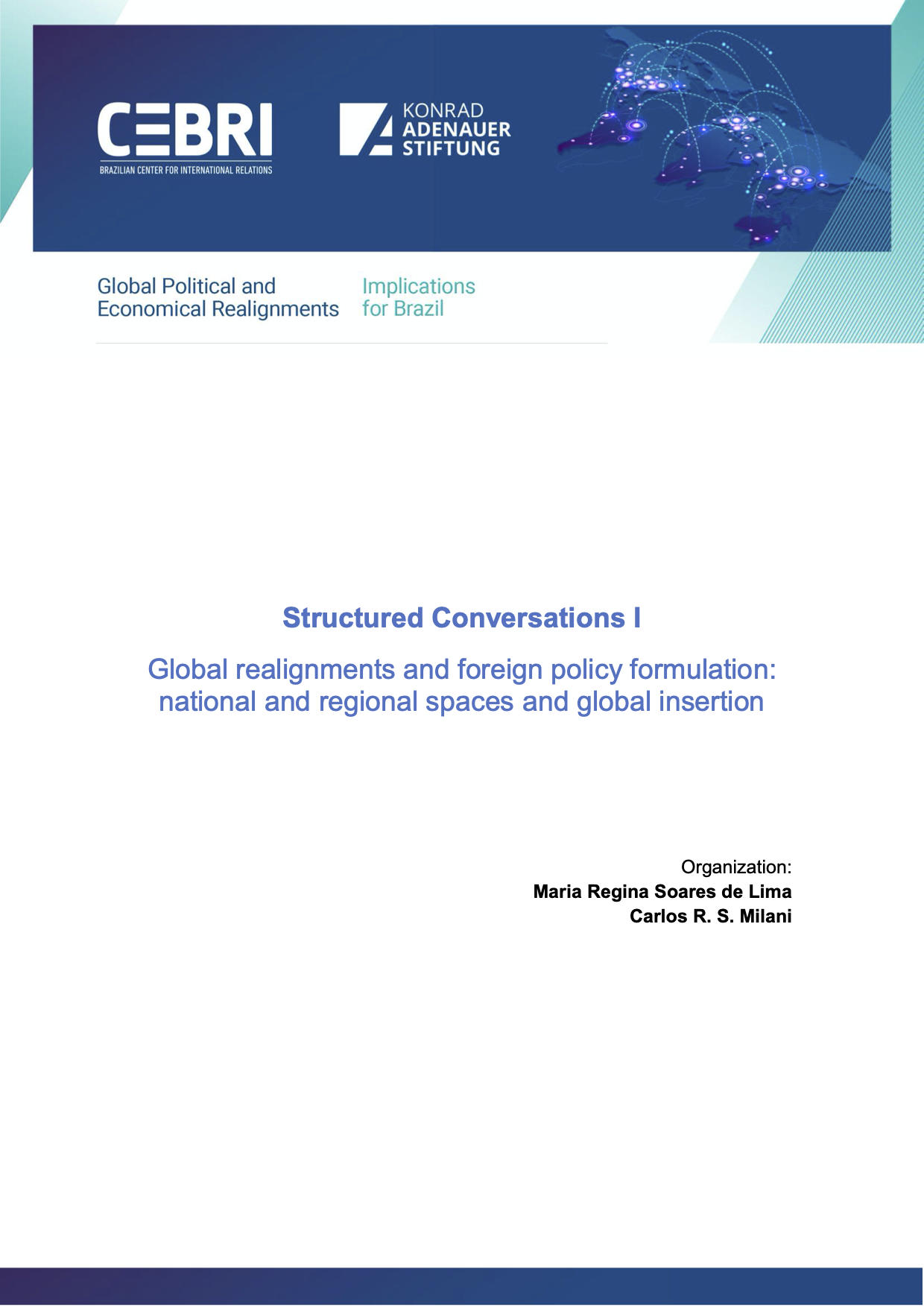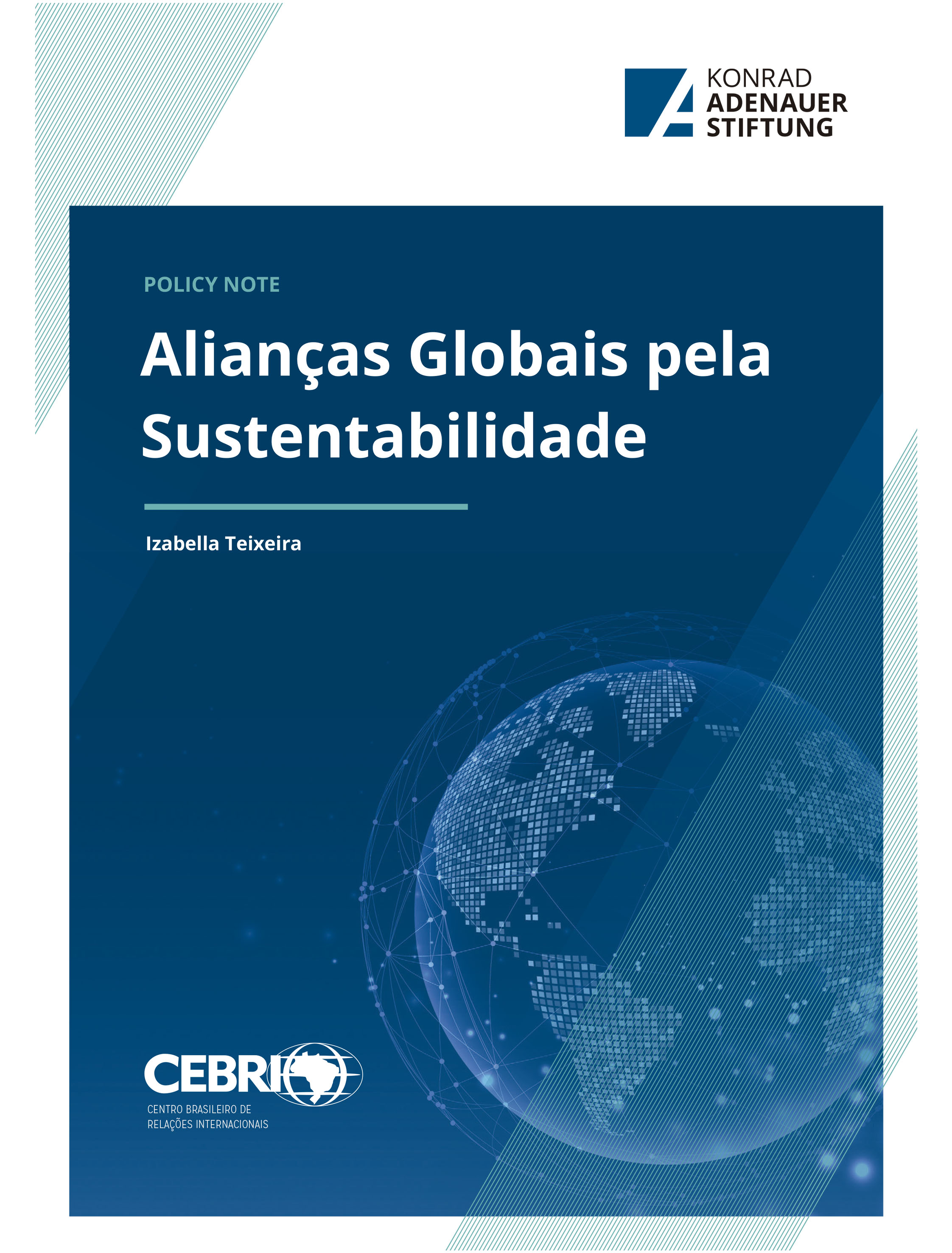Policy Papers
Global Political and Economic Realignments: Implications for Brazil
- Multilateralism
- 19 april 2022
Giving continuity to the reflections conducted over the last years by the partnership CEBRI - Konrad Adenauer Foundation, the present publication "Global Political and Economic Realignments: Implications for Brazil" deepens the debate on what may become the multilateralism of the XXI century. Considering the new agendas and challenges, the authors analyze the international conjuncture through recent facts that produce broad international externalities: the US election, the US-China conflict, the renewed interest in multilateralism as a policy, new commercial and industrial dynamics, technology, as well as the considerable advance of the climate agenda. In addition, the analyses strive to investigate what would be the position of Brazil, an emerging power, in this new scenario shaped by new principles. In addition to the collection of policy papers, this publication also contains "Structured Conversations", series of interviews with international experts on the topics covered.
Giving continuity to the reflections conducted over the last years by the partnership CEBRI - Konrad Adenauer Foundation, the present publication "Global Political and Economic Realignments: Implications for Brazil" deepens the debate on what may become the multilateralism of the XXI century. Considering the new agendas and challenges, the authors analyze the international conjuncture through recent facts that produce broad international externalities: the US election, the US-China conflict, the renewed interest in multilateralism as a policy, new commercial and industrial dynamics, technology, as well as the considerable advance of the climate agenda. In addition, the analyses strive to investigate what would be the position of Brazil, an emerging power, in this new scenario shaped by new principles. In addition to the collection of policy papers, this publication also contains "Structured Conversations", series of interviews with international experts on the topics covered.
